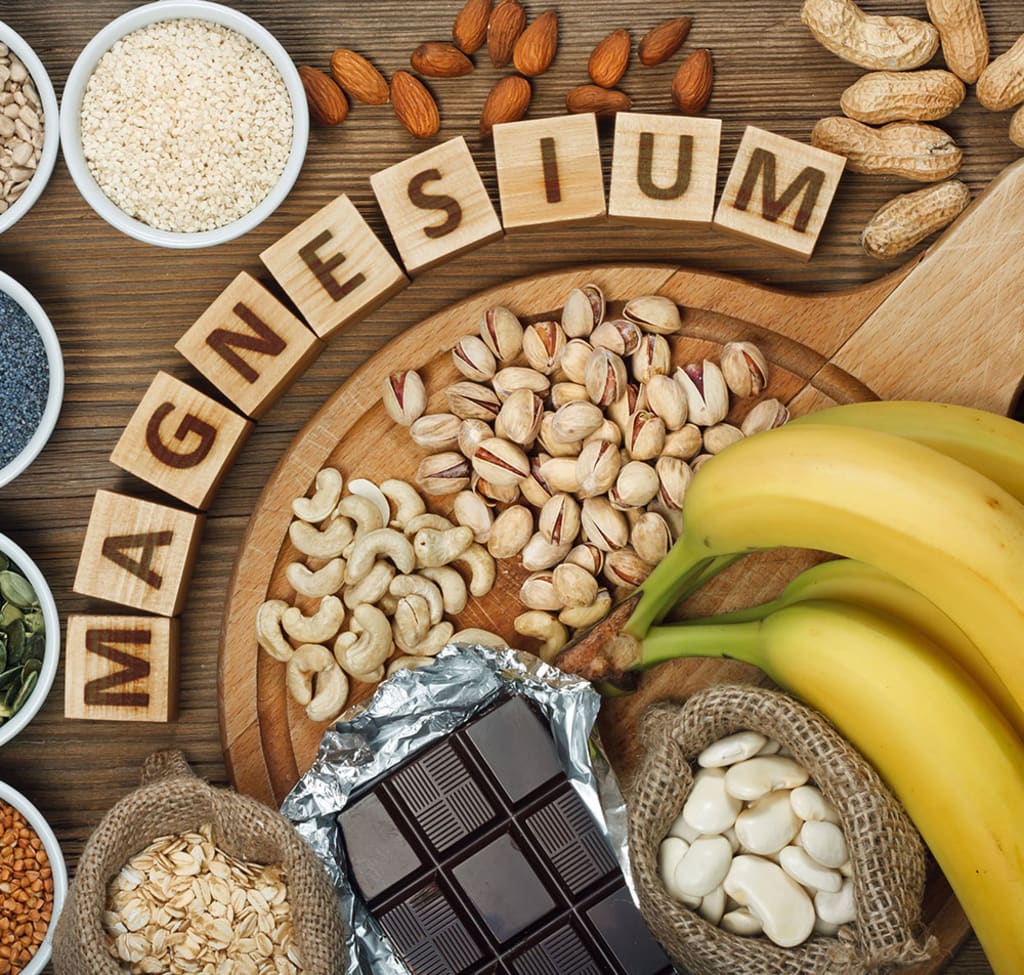Can Magnesium Stop Muscle Cramp Fast And Prevent It From Coming Back?
Stop Muscle Cramp Fast With Magnesium

Magnesium is a crucial mineral that plays a vital role in over 300 biochemical processes in the human body. It is the fourth most abundant mineral in the body. One of its important functions is facilitating effective muscle contraction and nerve transmission, thereby helping to prevent muscle cramps.
According to a study, a significant number of participants reported that magnesium treatment was beneficial compared to a placebo. Specifically, 78% of subjects believed that magnesium had helped them, while only 54% said the same about the placebo.
Furthermore, a large-scale study suggests that a substantial portion of Americans, approximately 75%, do not meet their daily recommended intake of magnesium.
To address this deficiency, a product has been developed that combines various nutrients, including 300mg of high-quality grade magnesium. This combination aims to rapidly increase magnesium levels and alleviate symptoms such as cramps and spasms associated with nutrient deficiency.
Click Here To Learn More About The Natural Product That Combines Various Nutrients
Magnesium is an essential mineral that is involved in numerous biochemical processes in the body. It is necessary for proper muscle function, nerve signaling, energy production, and the maintenance of healthy bones and teeth. Despite its importance, many individuals do not consume adequate amounts of magnesium in their daily diets.
Muscle twitching and cramps are common symptoms of magnesium deficiency. When magnesium levels are low, the muscles may not contract and relax as efficiently as they should, leading to involuntary contractions and spasms. By supplementing with magnesium, individuals can replenish their magnesium stores and potentially alleviate muscle twitches and cramps.
In addition to its role in physical health, magnesium also plays a significant role in mental well-being. Research has shown a potential link between magnesium deficiency and mental health disorders such as anxiety and depression. Magnesium helps regulate neurotransmitters, such as serotonin, which are involved in mood regulation. By ensuring adequate magnesium levels, individuals may experience improvements in their mental health.
Insulin sensitivity, which refers to the body's ability to respond to and utilize insulin effectively, is another area where magnesium is important. Magnesium assists in insulin metabolism and helps maintain normal blood sugar levels. Inadequate magnesium levels have been associated with insulin resistance, a condition that can lead to type 2 diabetes. By optimizing magnesium intake, individuals may enhance their insulin sensitivity and reduce the risk of developing diabetes.
Osteoporosis, a condition characterized by weakened and brittle bones, is also influenced by magnesium levels. Magnesium is involved in the regulation of calcium, another essential mineral for bone health. It helps promote calcium absorption and utilization, preventing its deposition in soft tissues and contributing to the maintenance of strong bones.
Fatigue and muscle weakness are often experienced by individuals with magnesium deficiency. Magnesium is involved in energy production at the cellular level, as it participates in the conversion of food into ATP (adenosine triphosphate), the body's primary energy molecule. By ensuring adequate magnesium levels, individuals may experience increased energy levels and reduced muscle weakness.
Furthermore, magnesium has been studied for its potential benefits in conditions such as severe asthma, heart arrhythmia, insomnia and restless sleep, heightened stress and anxiety, and unhealthful inflammation. While more research is needed in these areas, preliminary evidence suggests that magnesium supplementation may have a positive impact on these conditions.
Click Here To Learn More About The Natural Product That Combines Various Nutrients
Benefits Of Magnesium In Prevent Muscle Cramps
- Muscle Relaxation: Magnesium helps relax the muscles by blocking calcium entry into muscle cells. This action aids in preventing muscle cramps and spasms.
- Electrolyte Balance: Magnesium is an essential electrolyte that works in conjunction with other minerals, such as potassium and sodium, to maintain proper fluid balance in the muscles. This balance is crucial for preventing muscle cramps.
- Improved Muscle Contraction: Magnesium plays a role in facilitating effective muscle contraction. By ensuring sufficient magnesium levels, the muscles can contract and relax smoothly, reducing the likelihood of cramping.
- Nerve Function: Magnesium is vital for proper nerve function and transmission. Adequate magnesium levels help ensure that nerve signals are transmitted smoothly, minimizing the risk of muscle cramps caused by nerve dysfunction.
- Enhanced Blood Circulation: Magnesium helps promote healthy blood flow by relaxing and dilating blood vessels. Improved circulation ensures that the muscles receive adequate oxygen and nutrients, reducing the likelihood of cramps.
- Stress Reduction: Magnesium has a calming effect on the body and helps regulate stress hormones. By reducing stress levels, magnesium can indirectly contribute to preventing muscle cramps that may be triggered or exacerbated by stress.
- Anti-Inflammatory Properties: Magnesium possesses anti-inflammatory properties that can help reduce inflammation in muscles. By alleviating inflammation, magnesium may help prevent cramps associated with inflammation-induced muscle irritation.
- Electrolyte Replenishment: During exercise or activities that cause excessive sweating, magnesium is lost through sweat along with other electrolytes. Replenishing magnesium levels can help prevent imbalances and subsequent muscle cramps.
- Improved Hydration: Magnesium plays a role in water balance within the body. By ensuring adequate hydration, magnesium helps prevent dehydration, which can contribute to muscle cramps.
- Overall Muscle Health: Magnesium is involved in various enzymatic reactions that support muscle health and function. By maintaining optimal magnesium levels, individuals can promote overall muscle health, reducing the likelihood of cramps.
It's important to note that while magnesium supplementation can be beneficial in preventing muscle cramps, it's advisable to consult with a healthcare professional to determine the appropriate dosage and ensure it is suitable for your individual needs and health condition.
In conclusion, magnesium is a crucial mineral with a wide range of essential functions in the body. Many individuals do not consume enough magnesium in their diets, leading to potential deficiencies. By incorporating magnesium supplementation, individuals may experience improvements in muscle function, mental health, insulin sensitivity, bone strength, fatigue levels, and various other conditions associated with magnesium deficiency. However, it is always advisable to consult with a healthcare professional before starting any new supplementation regimen.
Click Here To Learn More About The Natural Product That Combines Various Nutrients





Comments
There are no comments for this story
Be the first to respond and start the conversation.